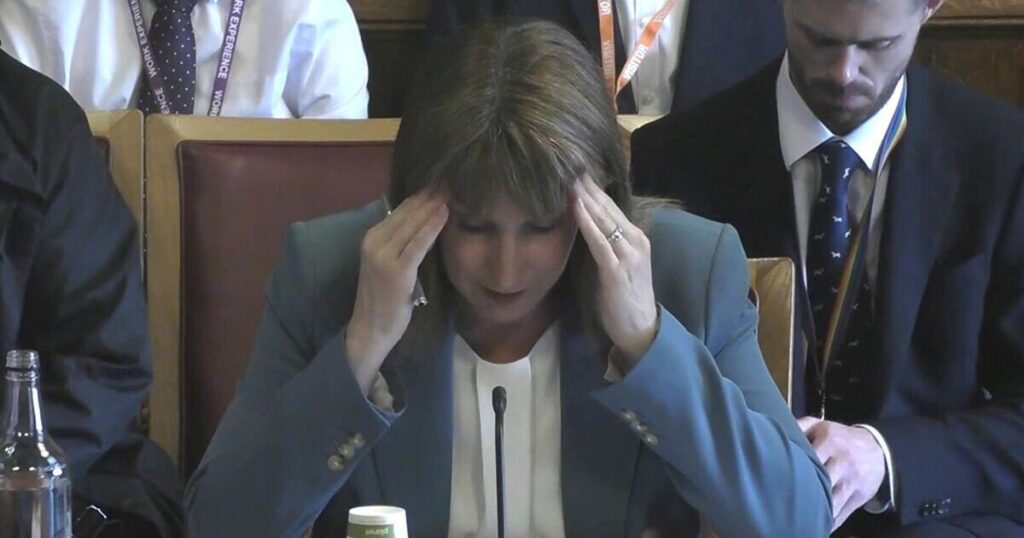
Britain’s “most hated of taxes” is increasingly a “meal ticket” for the nation’s coffers, financial experts have warned. Inheritance tax (IHT) receipts hit £2.2 billion in the first three months of the current tax year, data released by HM Revenue and Customs (HMRC) on Tuesday showed.
This is £100 million higher than the previous tax year, and continues an upward trend over the last two decades. The June figure means that IHT revenues for this financial year so far are running 4.8% ahead of the same period last year, which set a record for the amount raised by the levy.
Nicholas Hyett, investment manager at Wealth Club said: “Inheritance tax continues to be a meal ticket for HMRC. While wealth taxes, IHT’s uglier sibling, will be in the spotlight in the run up to the autumn budget it wouldn’t be entirely surprising to see further tinkering with IHT too. As things stand inheritance tax may only affect a small percentage of estates, but that number is on the increase as an ever greater number of estates become liable for the most hated of taxes.
“This is a result of years of freezes in thresholds, matched with increasing house prices and rising inflation. Families who wouldn’t consider themselves to be wealthy at all may now face a bill on the passing of a loved one.”
The current inheritance tax allowance has been frozen at £325,000 for 16 years, and remains frozen for another 5 years until 2030.
The £175,000 residence nil rate band has not changed since 2020.
Mr Hyett said: “These freezes are a form of stealth tax, which allows the government to increase their take without a backlash from a headline grabbing tax hike, but still contribute to the highest tax burden in 70 years.
“The Chancellor has already hinted at U-turn on IHT for non-doms, thanks to the exodus of wealthy individuals over the last few months. But farmers who are lobbying hard for their own cause, have yet to see any relief, and rumours swirl that AIM could be a victim of double dipping as the Chancellor comes back to the UK’s growth stock market looking for tax revenues.”
The Office for Budget Responsibility’s most recent forecast, published at the Spring Statement, projects another record year coming with IHT predicted to generate £9.1 billion for the Treasury in 2025/26.
Revenues are expected to raise more than £14 billion in the 2029/30 financial year.
Ian Dyall, head of estate planning at wealth management firm Evelyn Partners, said: “Property prices and equity valuation remain at or near all-time highs, and once business and agricultural property reliefs are watered down from next April, and then unspent pension funds become subject to IHT calculations from April 2027, there’s likely to be big jumps in IHT liabilities across the UK, and not just in the South East where they are traditionally concentrated.”
It comes as families will be forced to pay inheritance tax on pensions after the government pushed ahead with plans that had faced a significant backlash.
Pensions will be added to estates from April 2027 when working out whether someone’s estate is liable for inheritance tax at 40 per cent in a move that will raise £1.46 billion a year by 2029-30.
HMRS estimates that about 10,500 estates in 2027-28 will now have to pay IHT and 38,500 will face a larger bill.
Sir Steve Webb, a former pensions minister, said: “Life is tough enough when you have just lost a loved one without having extra layers of bureaucracy on top. In future, the person dealing with the estate will need to track down all of the pensions held by the deceased which may have any balances in them, contact the schemes, collate all the information and put it into an online calculator and then work out and pay the IHT bill.
“Complications will no doubt arise where the family member cannot track down all of the deceased’s pensions or where providers are slow to supply the information needed to work out the IHT bill.”
He suggested the government should “give serious thought” to changing the penalty rules around late payment of inheritance tax bills to ensure grieving families were not at risk of fines because of delays outside of their control that pension schemes might cause.
Sir Steve, a partner at the consultancy Lane Clark and Peacock, said: “While the changes HMRC has made are undoubtedly good news for pension schemes and those who administer them, it is hard to see that they are good news for bereaved families.”
A Treasury spokesman said: “Nine in 10 estates will continue to pay no inheritance tax by 2030, and the first £325,000 of any estate can be inherited tax-free, rising to £500,000 if the estate includes a residence passed to direct descendants, and £1 million when a tax free allowance is passed to a surviving spouse or civil partner.
“The tough but necessary decisions we’ve taken on tax mean we could protect working people’s payslips from higher taxes, invest record amounts into the NHS, defence and other public services while keeping bus fares at £3 and expanding free school meals.”
 Latest World Breaking News Online News Portal
Latest World Breaking News Online News Portal






